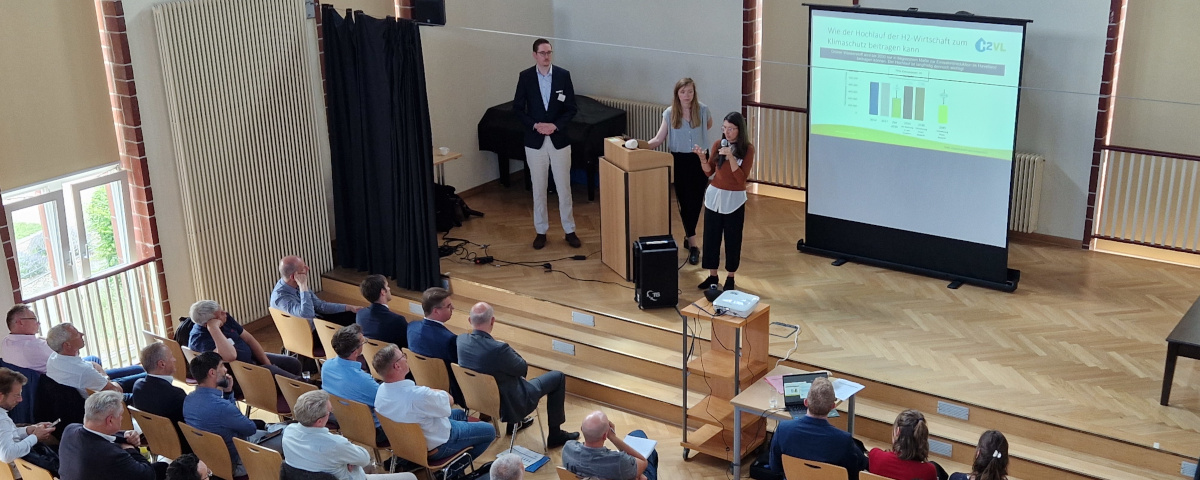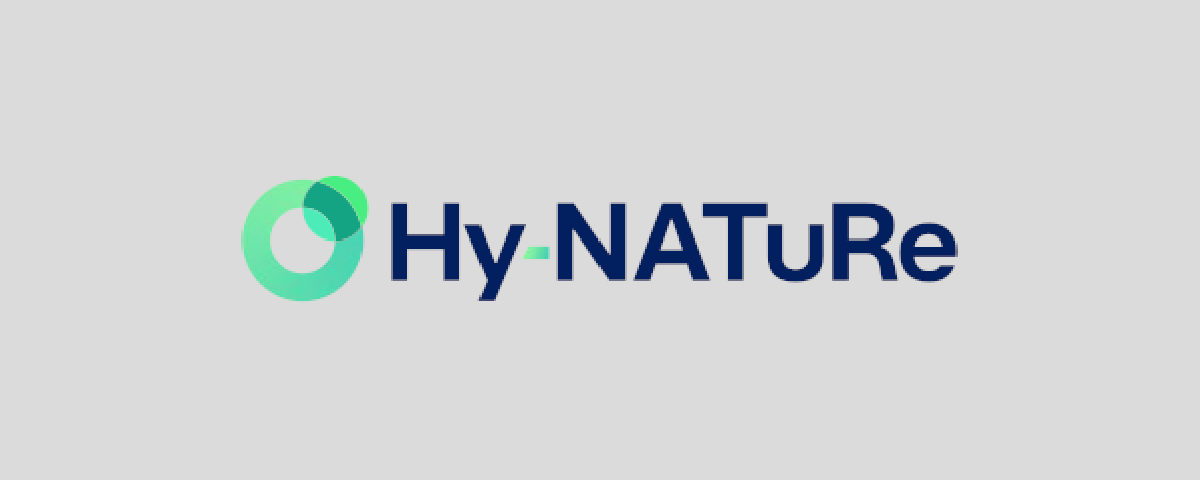
Cure: Research cooperation to strengthen Cuba‘s climate change resilience in the energy sector
28. June 2023
Study shows: Hydrogen economy has great potential in Havelland – Results of the H2VL initiative presented at final workshop
4. July 2023Hy-NATuRe final event: Roadmap for the establishment of green hydrogen in the Neckar-Alb region is ready

June 29, 2023 | For a good year now, the districts of Tübingen and Reutlingen have been jointly advancing the topic of green hydrogen with the project “Hy-NATuRe” (Hydrogen – Neckar-Alb-Tuebingen-Reutlingen). On June 29, the preliminary final event of the project took place with 60 regional stakeholders at the Westspitze in Tübingen.
The jointly developed roadmap for a regional hydrogen economy was presented there. It was developed by selected hydrogen experts under the leadership of the engineering office for hydrogen technologies EMCEL. It contains recommendations for action aimed at politicians, administrators and companies in the Neckar-Alb region. In order to establish a regional hydrogen economy, the hydrogen network that has been created should be expanded and information and public relations work should be intensified. The roadmap also recommends setting up learning workshops and simplifying approval processes, especially for small hydrogen producers.
At the final event, around 60 actively involved stakeholders from the fields of hydrogen production, hydrogen distribution, hydrogen use and hydrogen knowledge came together to discuss the results of the project. In discussions with the experts, the participants were able to learn and exchange information about funding opportunities, economic viability and business models, as well as technology and market developments.
Dr. Ulrich Fiedler, District Administrator of Reutlingen, was pleased about the broad participation of the region in the project: “Our goal is to become one of the leading hydrogen regions. Because we are convinced that hydrogen technology will make a decisive contribution to the economic and social transformation of our region into a climate-neutral future.”
Hydrogen generation and demand potential
The roadmap is based on calculations of how much hydrogen is potentially needed in the region and could also be generated. According to forecasts, hydrogen demand in the districts of Reutlingen and Tübingen will be about 1,500 tons or 50 gigawatt hours by 2030 and about 13,500 tons or 450 gigawatt hours by 2045, primarily in the transportation sector. The generation and demand potentials are compared in a modeling exercise. The results show that by about 2035, much of the hydrogen needed can be produced regionally.
Numerous projects for the production of green hydrogen from renewable electricity by means of electrolysis and from biogas are already underway in the region. In the future, the hydrogen produced is to be used, among other things, for the operation of hydrogen buses in local public transport, hydrogen trucks in logistics and hydrogen utility vehicles, e.g. refuse collection vehicles. The use of hydrogen-powered trains is also conceivable. In the medium term, the use of regional green hydrogen in building technology and the conversion of industrial processes should help to reduce emissions of climate-damaging greenhouse gases in the districts.
The participants of the final event were able to get an idea of the practical suitability of various hydrogen vehicles directly on the premises of the Westspitze: SSB’s new fuel cell bus, a Toyota Mirai and a hydrogen-powered cargo bike were presented there.
The future of Hy-NATuRe
The Hy-NATuRe project has shown that a regional hydrogen economy is possible in the Neckar-Alb region and that there are already many actors working on its implementation. The cooperation and networking of the actors will continue to be important in the future in order to leverage the potential of hydrogen in the region.
A survey currently being conducted for the project makes it clear that the stakeholders involved continue to have an interest in and need for the continuation of Hy-NATuRe activities. These include network meetings, workshops and informational events to further advance the hydrogen economy in the region. The two counties will continue the network and look forward to the opportunity to contribute to the energy transition in the region.
Tübingen County Economic Development Department Head Anke Armbrust-Hikel emphasized, “Tübingen County as an innovation location supports green hydrogen as an energy carrier and important technological advancement, whose production and use is a significant building block for a sustainable future of our regional economy and a local contribution to the implementation of European climate protection goals.”
HyLand hydrogen regions
“HyLand – Hydrogen Regions in Germany” is a competition launched in 2019 by the German Federal Ministry of Digital Affairs and Transport (BMDV), which is already in its second round. In the first round, the district of Reutlingen was already successful as a HyStarter region in 2020/21.
In the second stage of the competition HyExperts, the districts of Reutlingen and Tübingen successfully applied together. The development of the “Hy-NATuRe” region as a hydrogen region is being funded with a total of 400,000 euros by the German Federal Ministry of Digital Affairs and Transport as part of the National Hydrogen and Fuel Cell Technology Innovation Program (NIP2). The funding directive is coordinated by NOW GmbH and implemented by Project Management Jülich (PtJ).
Further information is available at hy.land.
Go to the project website this way.




